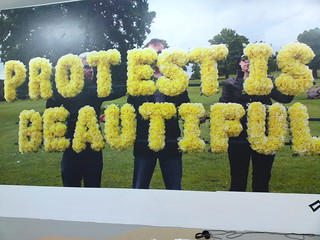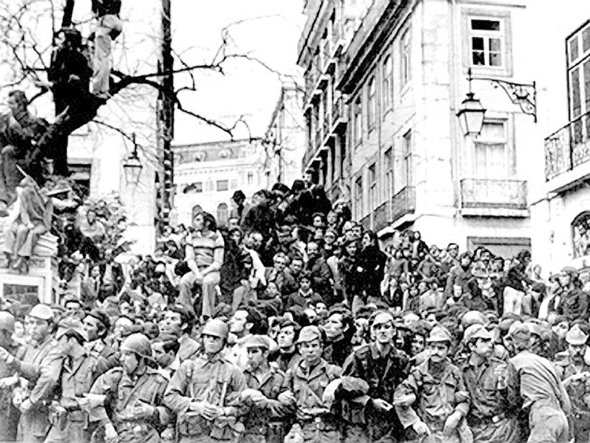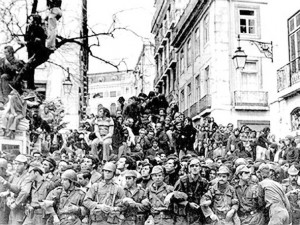 Last month there was a big to-do in South Africa over an art piece by Brett Murray, depicting president Jacob Zuma posing in a Lenin-style look to the future along with his penis being clearly visible. Protesters have called it everything from disrespectful to racist, culminating in one enraged person attacking the artwork, damaging it, and closing the exhibition (or is it back already? I haven’t heard the latest)
Last month there was a big to-do in South Africa over an art piece by Brett Murray, depicting president Jacob Zuma posing in a Lenin-style look to the future along with his penis being clearly visible. Protesters have called it everything from disrespectful to racist, culminating in one enraged person attacking the artwork, damaging it, and closing the exhibition (or is it back already? I haven’t heard the latest)
Zuma has long been a contreversial figure, especially when it comes to sex and sexuality. He has had 6 wives and from them a grand total of 20 children. More infamously, he was acquitted of rape in 2005. Throughout his political career in some way sex or sexuality has always been there, either in the background or the foreground. This would seem to be the grounds for which the artist chose to prominently include the president’s penis in the image.
Many disagree. They see these matters and personal and not subject to public criticism. They also feel the president of the nation deserves respect and not to be made a caricature of. But they don’t just disagree and write about it in the media and express their opinion in the many forums available to people today. They take it further and seek to have such images banned and follow that with all manner of accusation about the intentions of the artist. Its a familiar theme in a world that has become very much about not just expressing an opinion, but stopping others from expressing their perhaps less popular opinion. Everyone is very busy being offended, and they demand someone else get in trouble for their alleged suffering.
Im neither South African nor a real artist, but I think there’s a global message in the events taking place around this work. Therefore I’m making sure “The Spear” is available on this site… enjoy – or don’t.

 In my formidable years as a university student and an activist, I happily attended any and all protests I could. To this day you might catch me bragging about the effects of tear gas and the importance of having a gas mask. I tried, using what means were available to me, to carry on the tradition I learned about in history books and through personal stories from previous generations- those who had protested before me. There is a great sense of pride and belonging that comes with engaging in such activities despite the occasional risks and tremendous odds one often faces. (Pro-East Timor Independence protests in the late 90’s were interesting but, admittedly, small)
In my formidable years as a university student and an activist, I happily attended any and all protests I could. To this day you might catch me bragging about the effects of tear gas and the importance of having a gas mask. I tried, using what means were available to me, to carry on the tradition I learned about in history books and through personal stories from previous generations- those who had protested before me. There is a great sense of pride and belonging that comes with engaging in such activities despite the occasional risks and tremendous odds one often faces. (Pro-East Timor Independence protests in the late 90’s were interesting but, admittedly, small) In an effort to save money and increase productivity, Portugal is getting rid of some holidays that people don’t really celebrate anymore. Among the obsolete days of non-work, the day the nation dumped the monarchy and became a republic,
In an effort to save money and increase productivity, Portugal is getting rid of some holidays that people don’t really celebrate anymore. Among the obsolete days of non-work, the day the nation dumped the monarchy and became a republic, 

 I step onto a metro or tram in Amsterdam and I swipe my transport card. This card has my photo and an RFID chip with personal information about who I am and where I live. I swipe the card again upon exit, as per the rules, which goes onto a database that contains information about the duration of my ride, the cost, and locations.
I step onto a metro or tram in Amsterdam and I swipe my transport card. This card has my photo and an RFID chip with personal information about who I am and where I live. I swipe the card again upon exit, as per the rules, which goes onto a database that contains information about the duration of my ride, the cost, and locations.